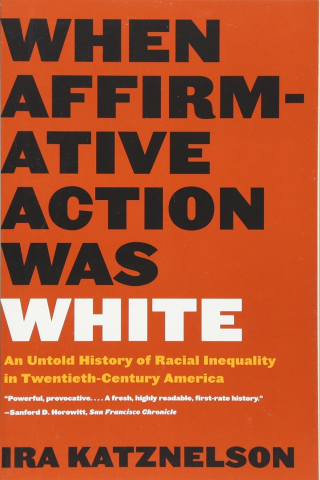Our main topic, though, is going to be how Democrats overlearned some points about racial discrimination in the administration of New Deal economic programs. This discrimination was a real thing, and a real problem, and it’s good to learn the history of it. But the big picture is that New Deal economic programs were so good for lifting African-American living standards that they broke Black voters’ historic loyalty to the Republican Party even though Republicans were, at the time, still clearly the more progressive party on civil rights and racial justice issues.
Obama thinks the New Deal was bad for Black People
Here’s Barack Obama speaking to Jonathan Chait about FDR:
The New Deal itself was a hodgepodge of efforts — some of which were really significant and some of which have taken on a great symbolism in our minds but were actually pretty modest. And even the huge victories like Social Security, if you were a Black domestic worker in Birmingham, Alabama, or in Atlanta, Georgia, Social Security didn’t mean much to you. And if you had been a socialist or leftist or just somebody who wanted social justice back in the ’30s, you’d be pretty angry about Social Security because it left out huge numbers of people, deliberately, to placate racist Dixiecrats, right? Sometimes we forget that these political constraints have always operated. That’d be one thing.
Obama is making two different arguments here, one of which I wholeheartedly endorse. Many of Obama’s critics on the left say that FDR was a good president. But if you take the standard those critics apply to Obama and apply it to FDR instead, then FDR looks really bad.
Most negative things you could say about Obama from a progressive point of view fit comfortably into those buckets. So if FDR gets a pass then Obama feels he deserves one too. I think maybe a better lesson would be that people overly idealize past presidents and have a more realistic sense of the pros and cons of more recent ones. Either way, though, I agree with Obama that by any fair reckoning he’s not so different from any other good president — he bowed to political realities, he made some errors, but he also accomplished some important things.
But Obama is also alluding to a specific claim about race and the New Deal. It’s a claim that carries some truth but that I think a lot of contemporary progressives have taken too far.
When affirmative action was white
In 2005, the historian Ira Katznelson published a book titled When Affirmative Action Was White that has been very influential in how contemporary Democrats assess the New Deal and the Fair Deal. These programs were enacted during the Jim Crow era by a Democratic Party that included arch-segregationists in its coalition, so they reflected Jim Crow values. Katznelson told the story of how elements of racial exclusion were baked into these programs, and conceptualized them as a kind of “affirmative action for white people” — emphasizing that African-American relative deprivation was not just an abstract legacy of the past, but a concrete artifact of previous steps taken by the federal government.
These days you see a lot of work done based on the HOLC maps that included the infamous “red lines” but the set of discriminatory programs was much broader than the one housing undertaking.
By the same token, in the postwar years these programs were important in constituting a new form of solidaristic whiteness. One of my grandfathers was Cuban-American and the other was Jewish, and both had the misfortune to encounter plenty of racist people and bigoted attitudes over the course of the 1930s, 1940s, and 1950s. But unlike the Black men of their age, they were entitled to equal treatment with their WASP peers in terms of the actual operation of government programs. They were “white enough” and that’s worth a lot.
Katznelson’s book is good, I’m glad that I read it, and if you haven’t you should consider reading it too.
That said, his nuanced and thoughtful book has often gotten boiled down into a bullet point — Matt Zeitlin calls it “Vulgar Katznelsonism” — that’s like The New Deal Left Out Black People which Obama seems to be invoking here and which stands history on its head.
